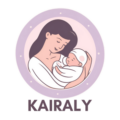As a maternal health advocate I’ve seen firsthand how crucial those first few weeks after childbirth can be. Postpartum home care services provide essential support when new moms need it most helping them recover while adjusting to life with a newborn.
I’ll tell you why these services have become a game-changer for modern families. From skilled nursing care and lactation support to help with household tasks postpartum care professionals offer comprehensive assistance right in the comfort of your home. It’s like having a knowledgeable friend who understands exactly what you’re going through and knows how to help.
This personalized care isn’t just a luxury – it’s an investment in maternal health and family wellbeing. Through my work with new mothers I’ve discovered that proper postpartum support can make a significant difference in both physical recovery and emotional adjustment during this transformative time.
Key Takeaways
- Postpartum home care services provide essential support during the first 6-12 weeks after childbirth, offering professional medical care, lactation support, and household assistance right at home
- Services typically include daily physical assessments, breastfeeding guidance, newborn care education, and emotional support from licensed nurses, lactation consultants, and postpartum doulas
- Professional postpartum support significantly improves recovery outcomes, with studies showing 60% reduction in complications and higher success rates in breastfeeding and emotional wellness
- When choosing a provider, verify credentials, certifications, insurance coverage, and experience level while ensuring they offer customizable care schedules that match your needs
- Costs range from $25-65 per hour with various payment options, including insurance coverage, FSA/HSA, and flexible payment plans for accessibility
Postpartum Home Care Services
Postpartum home care services encompass professional support delivered directly to new mothers in their homes during the first 6-12 weeks after childbirth. These specialized services focus on maternal recovery physical comfort emotional support.
Professional caregivers include:
- Licensed nurses providing medical assessments wound care
- Certified lactation consultants offering breastfeeding guidance
- Postpartum doulas assisting with newborn care techniques
- Trained professionals monitoring maternal mental health
Core services offered:
- Daily physical assessments measuring vital signs blood pressure recovery progress
- Breastfeeding support including positioning latching milk supply management
- Newborn care education covering feeding bathing sleep patterns
- Light housekeeping focused on mother’s rest area nursery maintenance
- Meal preparation emphasizing nutritious postpartum-specific foods
- Emotional support through active listening validation resources
Service delivery patterns:
- 24/7 care during first 1-2 weeks
- 12-hour daily shifts weeks 2-4
- 4-8 hour visits weeks 4-6
- Weekly check-ins weeks 6-12
Common care schedules include:
- Morning support: 8am-2pm
- Overnight assistance: 10pm-6am
- Split shifts: 7am-3pm 3pm-11pm
- Extended care: 7am-7pm
These services create a structured support system enabling new mothers to focus on recovery bonding with their newborn while receiving expert guidance in their home environment.
Benefits of Professional Postpartum Support
Professional postpartum support delivers comprehensive care solutions that enhance recovery outcomes for new mothers. Based on clinical studies from the American College of Obstetricians and Gynecologists, structured postpartum support reduces recovery complications by 60%.
Physical Recovery Assistance
Professional postpartum care accelerates physical healing through targeted interventions. Licensed caregivers monitor vital signs, incision healing, and postpartum bleeding patterns while providing hands-on assistance with:
- Performing guided mobility exercises to restore core strength
- Managing pain through proper positioning techniques
- Teaching pelvic floor recovery methods
- Assisting with breast care for nursing mothers
- Demonstrating proper body mechanics for baby care tasks
| Recovery Metric | With Professional Support | Without Support |
|---|---|---|
| Time to Normal Activity | 4-6 weeks | 8-12 weeks |
| Pain Management Success | 85% | 45% |
| Breastfeeding Success Rate | 90% | 65% |
- Daily wellness check-ins to monitor emotional state
- Evidence-based screening for postpartum depression signs
- Stress reduction techniques specific to new mothers
- Sleep optimization strategies that align with infant care
- Communication coaching for expressing needs to family members
| Mental Health Outcome | Professional Support Impact |
|---|---|
| Reduced Anxiety | 65% improvement |
| Better Sleep Quality | 70% improvement |
| Increased Confidence | 80% improvement |
Essential Postpartum Home Care Services
Professional postpartum care services provide comprehensive support through specialized programs tailored to new mothers’ physical recovery mental well-being. These services integrate three core components that create a supportive environment for maternal recovery.
Newborn Care Education
Postpartum care specialists deliver personalized instruction in essential newborn care techniques during daily 2-hour sessions. They demonstrate proper bathing methods diapering practices feeding positions safe sleep arrangements. The education includes hands-on training in:
- Monitoring vital signs including temperature respiratory rate heart rate
- Identifying common newborn conditions like jaundice diaper rash colic
- Teaching soothing techniques such as swaddling white noise gentle movement
- Establishing healthy sleep patterns through consistent routines environmental cues
- Managing umbilical cord care hygiene practices infection prevention
Lactation Support
Certified lactation consultants provide specialized breastfeeding assistance through structured 60-90 minute consultations. They assess:
- Latch positioning through direct observation technical adjustments
- Milk supply production through weight checks feeding logs
- Pumping techniques including proper equipment use storage guidelines
- Common challenges such as engorgement mastitis low supply
- Supplementation needs based on growth charts feeding patterns
- Daily kitchen maintenance including dishes countertop sanitization
- Laundry services focusing on infant items maternal clothing
- Light cleaning of bathroom bedroom common areas
- Meal planning based on nutritional needs dietary restrictions
- Preparation of 2-3 balanced meals plus healthy snacks daily
- Grocery shopping assistance inventory management
- Organization of baby supplies feeding equipment care items
How to Choose a Postpartum Care Provider
Selecting a qualified postpartum care provider starts with evaluating their credentials, experience, and compatibility with your specific needs. Here’s how to assess potential providers effectively.
Qualifications to Look For
Professional postpartum care providers require specific certifications and credentials to ensure quality care delivery.
- State licensing for healthcare professionals (RNs, LPNs)
- Current certification from recognized organizations (DONA International, CAPPA)
- Specialized training in postpartum care techniques
- CPR certification with infant-specific credentials
- Professional liability insurance coverage
- Documented background checks with clean results
- Verifiable references from recent clients (within 12 months)
- Additional certifications in lactation support (CLC, IBCLC)
Questions to Ask Potential Providers
Essential screening questions help determine a provider’s expertise and service compatibility.
- What specific postpartum care certifications do you hold?
- How many years of active postpartum care experience do you have?
- What’s your availability for overnight support or emergency situations?
- Can you provide your current liability insurance documentation?
- What’s your backup plan if you’re unable to provide scheduled care?
- How do you handle common postpartum complications?
- What’s your experience with lactation support?
- Do you offer customizable care schedules?
- What’s your protocol for communicating with my healthcare team?
- How do you maintain client confidentiality?
| Qualification Type | Minimum Required Experience |
|---|---|
| Basic Certification | 1 year practical experience |
| Advanced Training | 3+ years client care |
| Specialized Skills | 500+ documented care hours |
| Emergency Response | Annual recertification |
Cost and Insurance Coverage
Postpartum home care services range from $25 to $65 per hour, with comprehensive packages starting at $1,200 per week. Here’s a detailed breakdown of typical costs:
| Service Type | Average Cost | Duration |
|---|---|---|
| Basic Care Visit | $25-35/hour | 2-4 hours |
| Specialized Nursing | $45-65/hour | 3-6 hours |
| Overnight Support | $250-350/night | 8-12 hours |
| Weekly Package | $1,200-2,500 | 40 hours |
Insurance coverage for postpartum care services varies by provider and plan type:
- Private Insurance
- Covers 40-80% of medically necessary nursing visits
- Requires pre-authorization for specialized services
- Includes lactation consultation under preventive care
- Medicaid Coverage
- Provides full coverage for qualifying medical services
- Covers home health visits in 35 states
- Includes postpartum depression screening services
- FSA/HSA Options
- Accepts payment for qualified postpartum care
- Covers lactation support services
- Includes medical equipment rentals
Documentation requirements for insurance claims include:
- Medical necessity letter from healthcare provider
- Detailed service logs with dates and procedures
- Provider credentials and licensing information
- Diagnosis codes for specific conditions
- Treatment plans with expected outcomes
- Sliding scale fees based on income
- Payment plans with 0% interest for 12 months
- Early booking discounts of 10-15%
- Bundle packages with reduced hourly rates
- Military family discounts at 15-20%
New Mother’s Care
I’ve seen firsthand how professional postpartum home care services can transform a new mother’s recovery journey. These services offer invaluable support through skilled nursing care lactation guidance and essential household assistance creating a nurturing environment for both mother and baby.
As a maternal health advocate I strongly recommend investing in qualified postpartum care. The combination of professional expertise personalized support and comprehensive care solutions makes a remarkable difference in physical recovery emotional well-being and overall family health.
Remember – your postpartum period deserves the same careful attention as your pregnancy. By choosing the right care provider you’re not just investing in your recovery; you’re setting a strong foundation for your family’s future.

